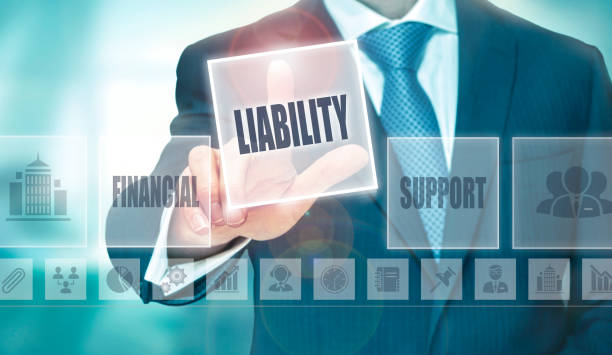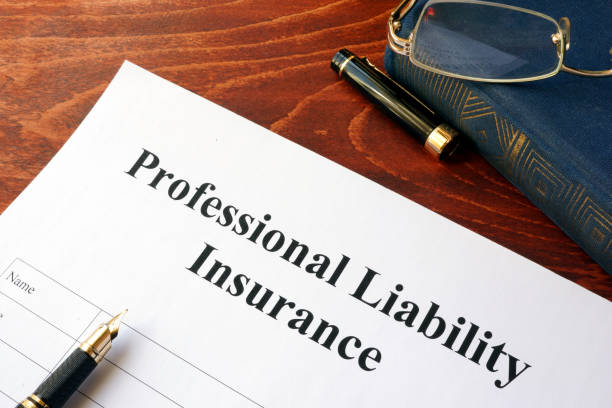Liability insurance is a crucial component of risk management for businesses of all sizes and industries. It provides financial protection and coverage against claims of negligence, injuries, property damage, or other liabilities that may arise from the operations of a business. In today’s litigious society, the potential for lawsuits and legal disputes is ever-present, making liability insurance an essential safeguard for businesses.
Liability insurance not only helps cover the costs of legal defense but also provides compensation for settlements, judgments, or awards that may be imposed against a business. Without liability insurance, businesses may face significant financial burdens that can jeopardize their operations, reputation, and even their very existence.
This type of insurance is designed to protect businesses from a wide range of liability risks, including bodily injury, property damage, product liability, professional errors and omissions, and general liability exposures. It provides coverage for legal fees, medical expenses, property repairs, and other associated costs, depending on the specific policy and coverage limits.
Every business, regardless of its size or nature, faces potential liability risks. Accidents, mistakes, or unforeseen circumstances can happen, and the resulting liabilities can be financially devastating. Liability insurance offers businesses the peace of mind and financial protection they need to operate confidently, knowing that they are shielded from the financial consequences of legal claims and liabilities.

In this guide to liability insurance, we will explore the different types of liability coverage available, the importance of carrying adequate coverage limits, factors to consider when selecting a policy, and tips for effectively managing liability risks. By understanding liability insurance and its significance, businesses can make informed decisions and proactively protect themselves from the potential liabilities that may arise in the course of their operations.
Understanding Liability Risks
Liability risks encompass a wide range of potential liabilities that businesses may face in their day-to-day operations. It is essential for business owners to have a comprehensive understanding of these risks to effectively manage and mitigate them. Here are some key liability risks that businesses should be aware of:
Bodily Injury: Businesses can be held liable for injuries sustained by individuals on their premises or as a result of their operations. Slip and fall accidents, accidents involving faulty equipment or negligence, or injuries resulting from product use are examples of potential bodily injury liabilities.
Property Damage: Businesses may be responsible for damage caused to third-party property. This could include damage to a customer’s property while performing services, damage caused by accidents involving company vehicles, or accidental damage to property leased or rented by the business.
Product Liability: If a business manufactures, distributes, or sells products, it can be held liable for any harm or injuries caused by defective or unsafe products. This can include design flaws, manufacturing defects, inadequate warnings or instructions, or failure to meet industry safety standards.
Professional Errors and Omissions: Professionals, such as doctors, lawyers, consultants, or architects, may be exposed to liability risks due to errors, omissions, or negligence in the provision of their services. Claims arising from professional malpractice or failure to meet professional standards can result in substantial legal costs and damage to reputation.
General Liability Exposures: Businesses face general liability exposures that are inherent to their operations. These can include libel or slander claims, false advertising allegations, copyright infringement, or other claims related to business activities that cause harm to third parties.
Understanding these liability risks is crucial for businesses as it allows them to identify potential areas of vulnerability and take proactive measures to mitigate those risks. By implementing risk management strategies, maintaining safe operating procedures, and carrying appropriate liability insurance coverage, businesses can protect themselves from the financial and reputational consequences of liability claims. It is also important to stay updated on industry-specific liabilities and regulations to ensure compliance and minimize risks associated with evolving industry standards.
Types of Liability Insurance Coverage
One of the key aspects of managing liability risks is understanding the different types of liability insurance coverage available. Here are some common types of liability insurance that businesses should be aware of:
General Liability Insurance: General liability insurance provides coverage for a wide range of liability risks that businesses may face, including bodily injury, property damage, and personal injury claims. It helps protect against claims arising from accidents, slip and fall incidents, property damage caused by the business, and certain advertising or reputational harm.
Professional Liability Insurance: Also known as errors and omissions insurance, professional liability insurance is specifically designed to protect professionals who provide advice, services, or expertise to clients. It covers claims of negligence, errors, omissions, or inadequate work that result in financial loss for clients. Professionals such as doctors, lawyers, accountants, and consultants often carry professional liability insurance to safeguard against claims related to their professional services.
Product Liability Insurance: Product liability insurance is essential for businesses involved in manufacturing, distributing, or selling products. It provides coverage for claims arising from injuries or damages caused by defective or unsafe products. Product liability insurance helps protect businesses from the financial repercussions of product-related lawsuits, including legal defense costs, settlements, or judgments.

Cyber Liability Insurance: With the increasing threat of data breaches and cyberattacks, cyber liability insurance has become increasingly important. It provides coverage for the financial losses and liabilities resulting from data breaches, cyberattacks, or other cyber incidents. This insurance helps businesses cover the costs associated with data breach notification, credit monitoring, legal defense, and regulatory fines or penalties.
Directors and Officers (D&O) Insurance: D&O insurance protects directors and officers of a company from personal liability claims arising from their actions or decisions made in their official capacities. It covers legal defense costs and potential settlements or judgments in cases where directors or officers are sued for alleged wrongful acts, breach of fiduciary duty, or negligence.
Employment Practices Liability Insurance (EPLI): EPLI provides coverage for claims related to employment practices, including wrongful termination, discrimination, harassment, or violation of employment laws. It helps businesses cover legal defense costs, settlements, or judgments resulting from employee-related claims.
These different types of liability insurance coverage options allow businesses to tailor their insurance portfolios based on the specific risks they face. By understanding the coverage provided by each type of liability insurance, businesses can make informed decisions about the types and levels of coverage they need to adequately protect themselves against potential liabilities. It is recommended to consult with an insurance professional to assess the specific needs of the business and identify the most appropriate liability insurance coverage options.
Importance of Carrying Adequate Coverage Limits
Carrying adequate coverage limits is crucial when it comes to liability insurance. Inadequate coverage limits can expose businesses to significant financial risks in the event of a liability claim or lawsuit. Here are some reasons why carrying adequate coverage limits is essential:
Financial Protection: Adequate coverage limits provide businesses with the necessary financial protection in case of a liability claim. Without sufficient coverage, businesses may be forced to pay out of pocket for legal defense costs, settlements, or judgments, which can be financially devastating. Carrying adequate coverage limits ensures that the insurance policy can effectively respond to the financial obligations associated with a liability claim.
Legal Compliance: Many industries and jurisdictions have specific requirements regarding minimum liability insurance coverage limits. Failing to meet these requirements can result in penalties, fines, or even legal consequences. By carrying adequate coverage limits, businesses can ensure compliance with legal and contractual obligations, protecting themselves from potential legal and regulatory issues.
Top 5 Types of Commercial Insurance Every Business Owner Should Consider
Reputation and Trust: Adequate coverage limits demonstrate a commitment to responsible business practices and can enhance a business’s reputation and trustworthiness. Clients, partners, and stakeholders often consider a business’s insurance coverage as an indicator of its stability and ability to manage risks. Carrying sufficient coverage limits sends a message that the business is prepared to address potential liabilities and fulfill its obligations in the event of a claim, which can instill confidence and trust in its operations.
Mitigating Personal Liability: For business owners and executives, carrying adequate coverage limits can help protect personal assets. In the event of a liability claim against the business, having adequate coverage limits ensures that the claim is primarily handled by the insurance policy, reducing the risk of personal financial liability. This separation of personal and business assets is crucial for protecting the business owner’s personal wealth and assets from potential claims.
Future Growth and Expansion: As businesses grow and expand their operations, their liability risks may increase. Carrying adequate coverage limits allows businesses to adapt to changing circumstances and manage the evolving risks associated with growth. It provides a solid foundation for future expansion, protecting the business from unexpected liabilities and potential financial setbacks that could hinder growth opportunities.
Assessing the specific risks and liabilities associated with the business and consulting with an insurance professional can help determine the appropriate coverage limits. By carrying adequate coverage limits, businesses can mitigate financial risks, comply with legal obligations, build trust, protect personal assets, and position themselves for future growth and success.
Factors to Consider When Selecting a Policy
When selecting a commercial insurance policy for your business, it’s important to consider several key factors to ensure you make the right choice. Here are some factors to keep in mind:
Coverage Needs: Assessing your business’s unique coverage needs is crucial in selecting the right policy. Consider the specific risks and liabilities your business faces, such as property damage, liability claims, or cyber risks. Review your operations, industry requirements, and any contractual obligations to determine the appropriate coverage types and limits needed to adequately protect your business.
Policy Exclusions: Carefully review the policy exclusions to understand what is not covered by the insurance policy. Exclusions can vary from one policy to another, and it’s essential to be aware of any gaps in coverage that may leave your business vulnerable. Evaluate whether additional endorsements or separate policies may be necessary to fill those gaps.
Deductibles and Premiums: Evaluate the deductibles and premiums associated with the policy. The deductible is the amount you are responsible for paying before the insurance coverage kicks in, while premiums are the regular payments made to maintain the policy. Consider your budget and risk tolerance when determining the appropriate deductible and premium amounts. Higher deductibles typically result in lower premiums but require a larger out-of-pocket expense in the event of a claim.
Insurance Provider’s Reputation and Financial Strength: Research the reputation and financial strength of the insurance provider. Look for a reputable and established insurance company with a track record of reliability and prompt claims settlement. Review customer reviews, ratings, and industry rankings to gain insights into the provider’s customer service and financial stability. A financially strong insurer ensures that they can fulfill their obligations when a claim occurs.
Claims Process and Support: Understand the claims process and the level of support provided by the insurance company. A smooth and efficient claims process is vital in times of crisis. Research the insurer’s claims handling procedures, responsiveness, and availability of dedicated claims representatives. Prompt and reliable claims support can make a significant difference in getting your business back on track after a covered loss.

Policy Flexibility and Customization: Consider the flexibility and customization options offered by the insurance provider. Each business has unique needs and requirements, and it’s important to choose a policy that can be tailored to your specific situation. Look for options to add or remove coverage endorsements, adjust coverage limits, and customize policy terms to match your business’s evolving needs.
Taking the time to consider these factors when selecting a policy can help ensure that you choose the most suitable commercial insurance coverage for your business. Careful evaluation and consultation with an insurance professional can provide the necessary guidance to make an informed decision that adequately protects your business and mitigates potential risks.
Managing Liability Risks
Managing liability risks is essential for businesses to protect their assets and ensure their long-term sustainability. Liability risks can arise from various sources, such as accidents, injuries, property damage, or allegations of negligence. Implementing effective risk management strategies can help businesses mitigate potential liabilities and minimize financial and reputational damage. Here are some key approaches to managing liability risks:
Risk Assessment: Conducting a thorough risk assessment is the first step in managing liability risks. This involves identifying and evaluating potential hazards and vulnerabilities within your business operations. Assess the physical environment, work processes, equipment, and employee practices to identify areas of potential liability exposure. By understanding the specific risks your business faces, you can develop targeted strategies to address and mitigate those risks.
Implementing Safety Measures: Implementing robust safety measures is crucial for preventing accidents and injuries that can lead to liability claims. Establish clear safety protocols and guidelines that align with industry standards and regulations. Provide comprehensive training to employees on safety procedures and equip them with the necessary tools and protective equipment. Regularly review and update safety measures to ensure they remain effective and relevant.
Contracts and Agreements: Properly drafted contracts and agreements can help manage liability risks when dealing with clients, suppliers, contractors, or other stakeholders. Clearly define the rights, responsibilities, and liabilities of each party involved in the business relationship. Include indemnification clauses and hold harmless provisions that allocate liability and minimize potential disputes. Consult with legal professionals to ensure your contracts provide adequate protection for your business.
Understanding the Importance of Commercial Insurance for Small Businesses
Insurance Coverage: Acquiring appropriate liability insurance coverage is a fundamental part of managing liability risks. Liability insurance provides financial protection against potential claims and lawsuits. Consider policies such as general liability insurance, professional liability insurance, or product liability insurance, depending on your business’s specific risks. Work closely with an insurance professional to assess your coverage needs and secure adequate insurance that aligns with your business requirements.
Regular Maintenance and Inspections: Regular maintenance and inspections of your premises, equipment, and products can help identify and address potential hazards or defects that could lead to liability claims. Implement routine maintenance schedules, perform inspections, and promptly address any identified issues. By proactively maintaining and monitoring your business assets, you can minimize the risk of accidents or injuries that could result in liability claims.

Employee Training and Communication: Train your employees on best practices, safety protocols, and proper procedures to minimize liability risks. Foster a culture of safety and risk awareness within your organization. Encourage open communication channels so that employees can report potential risks or incidents promptly. Regularly communicate and reinforce safety policies and procedures to ensure they are followed consistently.
By proactively managing liability risks, businesses can protect their financial stability, reputation, and long-term viability. By conducting risk assessments, implementing safety measures, utilizing contracts, obtaining insurance coverage, performing regular maintenance, and fostering a culture of safety, businesses can effectively mitigate liability risks and minimize potential liabilities. Consulting with legal and insurance professionals can provide further guidance on managing specific liability risks within your industry.
Working with an Insurance Professional
Collaborating with an insurance professional can be highly beneficial when navigating the complexities of commercial insurance. Insurance professionals, such as brokers or agents, possess in-depth knowledge of the insurance industry and can provide valuable expertise and guidance. Here are three reasons why working with an insurance professional is advantageous:
Expertise and Industry Knowledge: Insurance professionals have a deep understanding of the insurance market, policies, and coverage options. They stay updated on industry trends, regulations, and emerging risks. This knowledge allows them to assess your business’s specific needs accurately and recommend appropriate insurance solutions. Insurance professionals can help you navigate the complexities of policy language, coverage exclusions, and endorsements. They can explain the intricacies of different types of insurance and guide you in selecting the most suitable policies for your business.
Customized Insurance Solutions: Insurance professionals take the time to understand your business’s unique needs and risks. They conduct thorough risk assessments, analyze your operations, and identify potential exposures that require coverage. Based on their findings, they can tailor insurance solutions to match your specific requirements. Insurance professionals have access to a wide range of insurance providers and policies, allowing them to compare options and negotiate coverage terms on your behalf. By leveraging their expertise, they can help you secure comprehensive coverage that addresses your business’s vulnerabilities.
Claims Assistance and Support: In the unfortunate event of a claim, insurance professionals act as your advocate and guide throughout the process. They assist you in filing the claim, provide documentation support, and liaise with the insurance company on your behalf. Their expertise in claims management ensures that you comply with the necessary procedures and deadlines, maximizing your chances of a successful claim settlement. Insurance professionals can also help resolve any claim disputes that may arise, working to protect your interests and ensure a fair resolution.

Working with an insurance professional provides peace of mind, knowing that your business’s insurance needs are being addressed by a knowledgeable and experienced advocate. They can save you time and effort by handling the complexities of insurance, allowing you to focus on running your business. When choosing an insurance professional, look for someone who is licensed, reputable, and has a track record of providing excellent service. Their expertise and personalized approach can make a significant difference in obtaining the right coverage at the best possible terms for your business.
Conclusion
In conclusion, liability insurance is a critical component of risk management for businesses of all sizes and industries. It provides financial protection against potential liabilities and legal claims that can arise from accidents, injuries, property damage, or allegations of negligence. By carrying liability insurance, businesses can safeguard their assets, reputation, and long-term viability.
Understanding liability risks, selecting the appropriate coverage types, and ensuring adequate coverage limits are essential considerations when obtaining liability insurance. Working with an insurance professional can greatly assist in navigating the complexities of liability insurance and tailoring coverage to meet the specific needs of your business. Their expertise, industry knowledge, and access to a wide range of insurance providers can help you secure comprehensive and tailored coverage.
Effective management of liability risks, including implementing safety measures, maintaining proper contracts, and regularly reviewing policies, is crucial in reducing the likelihood of incidents that can lead to liability claims. In the event of a claim, an insurance professional can provide guidance and support throughout the claims process, helping to ensure a fair resolution.
Ultimately, liability insurance provides businesses with the financial protection and peace of mind necessary to focus on their core operations. By proactively managing liability risks and carrying adequate coverage, businesses can mitigate potential liabilities, protect their assets, and maintain their overall stability and success.
